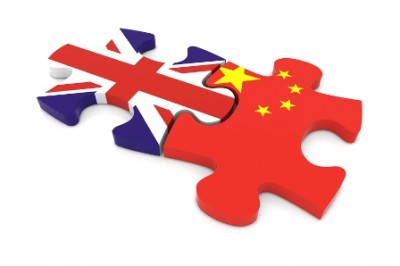Britain Joins China’s Asian Infrastructure Investment Bank (AIIB) Despite “U.S. Concerns”
In Face of Interest, Alliance Sometimes Fragile

Despite concerns voiced by its close ally the United States, Britain, a conventional Atlantic force, will become the first major Western economy to join a China proposed financing mechanism, which will explore investment opportunities in, mainly, Asia.
Downing Street believes its decision to apply to be a founding member of the China-backed Asian Infrastructure Investment Bank (AIIB) is “in the U.K.’s national interest.”
Domestic interests may not always be compatible with a country’s allies’ and, in this case, the ally of Britain chose to air concerns over, allegedly, looser lending standards for the environment, labor rights and financial transparency of the proposed bank.
The “unrivalled opportunity” for the United Kingdom, as seen by British Chancellor of the Exchequer George Osborne, is enviable, as financiers and industrialists widely expect total infrastructure investment of 8 trillion U.S. dollars in the coming decade in Asia. Not to mention the anticipated stable and handsome returns associated with infrastructure projects.
Other than the U.K., there are at least 27 bidders intending to be AIIB founding members, spanning East Asia, South Asia, Southeast Asia, Central Asia, the Middle East, to Oceania. All have shared the vision of faster-than-average growth in the years to come in Pacific Asia.
The AIIB, and similar organizations, have, understandably, left the U.S. uneasy, with the incumbent power choosing to use the rhetoric that the AIIB will undercut institutions such as the World Bank.
The idea of circumventing existing financial organizations, such as the World Bank and the International Monetary Fund (IMF), will pose a threat, if any, to the international economic and political pattern shaped after World War II, seven decades ago.
The Bretton Woods agreement depicted a global financial and monetary landscape, consolidating the U.S. dollar’s supremacy, which is still valid.
Currencies in the IMF Special Drawing Rights (SDRs) basket of reserve assets represent post-WWII U.S. allies — the pound sterling, the yen and the euro, in addition to the dollar.
One major winner of WWII, the Soviet Union and then Russia, never won its fair share with its currency, the ruble, in the IMF basket, partly due to its voluntary disengagement from Western mechanisms.
Rising to become the second largest economy in the world, China is advocating and working on revising the current international system, almost unchanged in the past 70 years, and as a system it is inadequate as lower income countries largely miss out on equal opportunities.
Its immense size and robust market have seen China sustain the appeal for the outside world, particularly as it frees its huge services market and encourages the outbound investment of surplus funds.
Following 30 years of reform and opening up, China is no longer heavily dependent on foreign capital and exporting money as well, with overseas direct investment of 102.9 billion U.S. dollars in 2014, only 16.7 billion U.S. dollars less than foreign direct investment the country attracted.
Besides the AIIB, China initiated and has taken a leading role in the BRICS development bank, the Silk Road Fund and a development bank for the Shanghai Cooperation Organization, all of which focus on infrastructure.
Designing financing tools that are complementary to the current international financial system, China has no intention of knocking over the chessboard, but rather is trying to help shape a more diverse world playing board.
With further liberalizing the yuan in floating exchange rates and cross-border transactions, China wishes to see its currency included in the IMF basket, in accordance with the weight the yuan now exerts on international goods and services trade.
China welcomes cooperation from every corner of the world to achieve shared prosperity based on common interest, but will go ahead anyway when it believes it is in the right.

